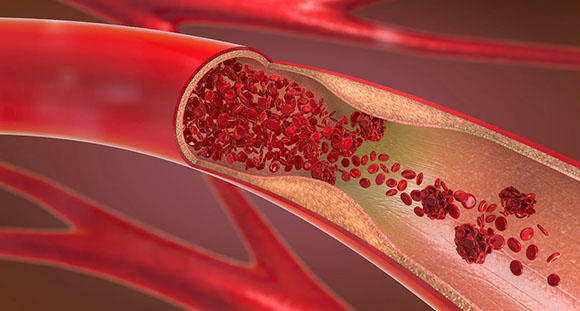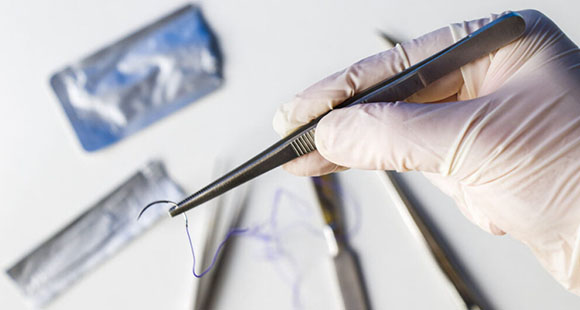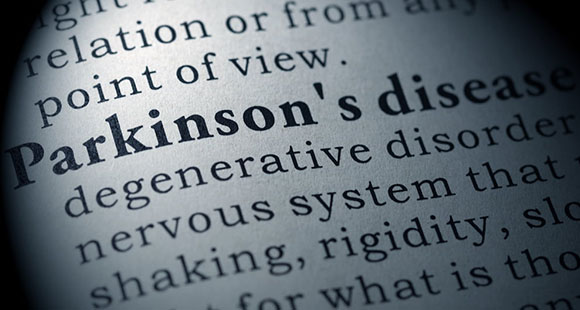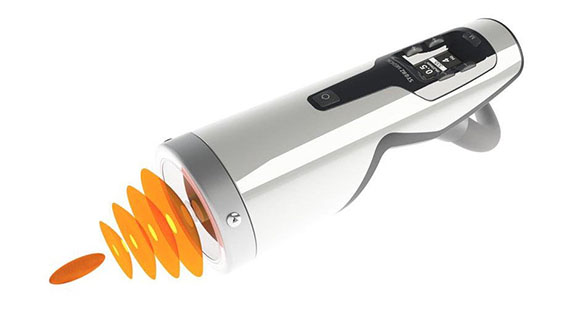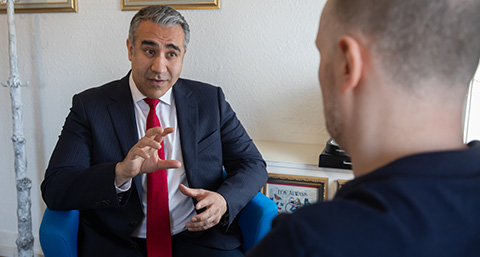
Post-Surgery ED Therapy for Prostate Cancer Patients
Prostate cancer can be a significant diagnosis for men, and after surgery, many may experience challenges related to their sexual health, including erectile dysfunction and incontinence. If you have undergone a radical prostatectomy or other prostate cancer surgery and are experiencing these issues, MansMatters offers a range of treatment options designed to support your recovery and enhance your sexual health.
Find out more how MansMatters can help you.
Contact us for a free 20-minute consultation with our men's health specialists.
Arrange a Complimentary Telephone Consultation
Book a Treatment or Diagnosis
Receive More Information
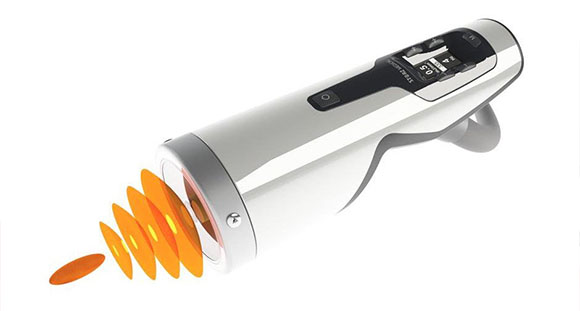
Our Approach to Supporting Sexual Health After Prostate Cancer Surgery
We provide non-invasive treatments for patients experiencing erectile dysfunction (ED), focusing on methods that aim to support long-term improvement in sexual health. Our treatment approach is non invasive It is designed to promote blood flow and support tissue health.
The Tesla Chair is a technological advancement designed to imitate pelvic floor or Kegel exercises, allowing users to perform a high volume of repetitions in a short session. Kegel exercises are commonly recommended by urologists after surgery, though many find it challenging to perform them manually.


Prostate cancer and sex lives
Men who undergo prostate cancer surgery may encounter various challenges related to sexual health. The prostate gland is involved in male sexual function, and its removal can lead to changes that some men experience, including difficulties with erectile function, alterations in sexual desire, and issues with achieving orgasm.
Men who have undergone prostate cancer surgery may encounter various challenges that can affect their sexual health and relationships. Changes in sexual function can influence intimacy and connection with a partner. Some men may hesitate to discuss these issues with their partners or healthcare providers, which can complicate access to support and treatment options.
In addition to impacts on sexual function, prostate cancer surgery can have other potential side effects, such as urinary and bowel issues, which may affect quality of life. While the full range of functions of the prostate gland is still being studied, it is known to play a role in both sexual and urinary health. The nerves and blood vessels that regulate sexual function are located near the prostate, and their potential damage during surgery can influence a man's ability to achieve and maintain an erection."

Find out more how MansMatters can help you.
Contact us for a free 20-minute consultation with our men's health specialists.
Arrange a Complimentary Telephone Consultation
Book a Treatment or Diagnosis
Receive More Information

Your life post surgery
According to Cancer Research UK, survival rates for prostate cancer have shown positive trends, with the ten-year survival rate now exceeding 85%. This reflects notable advancements in treatment options compared to a few decades ago when the ten-year survival rate was approximately 35%.
Prostate cancer is the most frequently diagnosed cancer in men, with over 57,000 new cases identified in the UK each year. While common treatment approaches include radiotherapy and surgery, these can lead to various side effects that may impact a patient's quality of life.


Post Surgery Support
While survival rates following prostate surgery have improved significantly, there is a noted need for ongoing support post-surgery. Some men may experience various side effects after prostate surgery, with erectile dysfunction and incontinence being reported as common outcomes.
Research indicates that a significant proportion of men may face challenges with erectile function following surgery, and some may experience incontinence in the long term. Reports suggest that the actual prevalence of these issues may be higher than documented statistics
Advancements in screening and early detection, along with improvements in treatment options, have contributed to better survival rates for prostate cancer. The implementation of techniques aimed at preserving nerve function during surgery has also aimed to address potential side effects associated with treatment, which can positively influence the overall experience of prostate cancer survivors

Causes of Prostate Cancer
While the precise causes of prostate cancer remain unclear, research has identified several factors that may increase the risk of developing this condition.
- Ageing is a known risk factor for prostate cancer, as individuals over the age of 50 are statistically at a higher risk. Many men in their 80s may be diagnosed with the condition; however, treatment approaches often focus on medication rather than surgery.
- Genetic factors may also play a role; individuals with a family history of breast or prostate cancer may have an elevated risk of developing prostate cancer.
- Obesity has been identified as a potential risk factor for prostate cancer.
- Research indicates that certain ethnic groups, including Black individuals, may have a higher risk of developing prostate cancer compared to other demographics.
Symptoms of Prostate Cancer
Until the prostate cancer has grown large enough to put pressure on the urethra, it usually doesn't cause any symptoms.
Common symptoms of prostate cancer include:
- frequent urination, often during the night,
- hesitancy
- weak urine flow
- blood in the urine and semen
- bone pain
- unintentional weight loss
- loss of appetite
- Erectile Dysfunction
It is important to note that experiencing any of these symptoms does not necessarily indicate the presence of prostate cancer
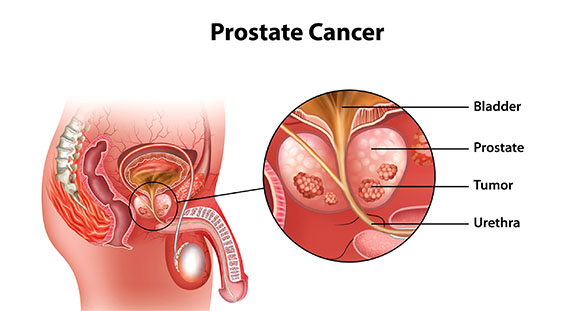
Diagnosis of Prostate Cancer
If the symptoms are persistent, then certain medical tests are undertaken to diagnose the exact reason for them. A PSA blood test is one of the most commonly used tests by the doctors when prostate cancer symptoms start to appear. However, this is not a definitive test for prostate cancer.
A biopsy test on the other hand provides a more definitive result as it is done to detect prostate cancer specifically and determine the severity of this disease. A Digital Rectal Examination or DRE is usually done before doing a biopsy.
If prostate cancer is detected, then further tests such as an MRI and CT scan or bone scan is done to check whether the cancer is contained within the prostate only or has spread elsewhere. The doctor will then suggest the required treatments based on the severity of the prostate cancer.
Mansmatters undertakes PSA testing and Digital Rectal Examinations.



Nerve-Sparing Prostatectomy & Its Impact on Sexual Function & Quality of Life
Sexual desire and function are influenced by both physical and psychological factors, including the performance of sex organs, blood supply, nerves, brain function, and hormones. In addition, one's thoughts and emotions towards oneself and others can also affect sexual response. If a man with prostate cancer is in a relationship, the effects on sexual function can also impact his partner.
If you have prostate cancer and it hasn't spread outside your prostate gland, surgery is a common option to try to cure it. The most common type of surgery is called a radical prostatectomy, which removes the prostate gland. However, in the past, a traditional type of prostatectomy called an open prostatectomy was more common, but it's done less often nowadays.
During a radical prostatectomy, the nerves responsible for potency are intertwined with blood vessels and must be controlled to prevent blood loss. To minimise damage to these nerves during surgery and reduce the risk of erectile dysfunction after the operation, surgeons will usually use a Nerve-Sparing (NS) approach. This means carefully dissecting the prostate gland and surrounding tissue, taking care not to damage the neurovascular bundles.
If the cancer has not spread beyond the prostate gland and the nerves can be preserved, the patient has a greater chance of retaining erectile function after the operation. This approach can also improve a patient's quality of life and reduce the psychological impact of prostate cancer treatment.
Overall, the outcomes of a nerve-sparing prostatectomy will depend on several factors, including the patient's age, overall health, and the extent of the cancer. While a nerve-sparing approach can help reduce the risk of erectile dysfunction after the operation, some patients may still experience some degree of erectile dysfunction.

ED Therapy for Prostate Cancer Patients FAQs
What Are the Traditional Treatments for Erectile Dysfunction (ED) in Men Who have Undergone Prostate Cancer Surgery?
The traditional treatments for ED after prostate cancer surgery include medications (such as “little blue pills”), penile injections, vacuum erection devices, and penile implants.
How do Medications Like "Little Blue Pills" Work to Improve Erectile Function After Prostate Cancer Treatment?
Medications like “little blue pills” work by improving blood flow to the penis, helping to facilitate an erection. They are typically taken orally before sexual activity.
What Are The Potential Side Effects of Medication Treatments for Edi in Men With a History of Prostate Cancer?
The potential side effects of medication treatments for ED may include:
- Headache
- Flushing
- Indigestion
- Nasal congestion
- Visual disturbances
- In rare cases, priapism (prolonged erection)
Are Penile Injections a Common Treatment Option for ED in Men Who Have Had Prostate Cancer Treatment?
Yes, penile injections are a common treatment option for ED in men who have had prostate cancer treatment. This involves injecting medication directly into the penis to improve blood flow and stimulate an erection.
How Do Vacuum Erection Devices Work, and are they Effective in Treating ED After Prostate Cancer Surgery?
Vacuum erection devices are external devices that create a vacuum around the penis, which helps draw blood into the penis and stimulate an erection. They can be effective in treating ED after prostate cancer surgery for some men, although comfort and ease of use may vary, and intercourse needs to be planned in advance which can be difficult in some situations especially when sex has previously been a spontaneous activity.
What Are Penile Implants, and Under What Circumstances are They Considered for Treating ED In Prostate Cancer Patients?
Penile implants are devices surgically implanted into the penis to help achieve an erection. While they enable a man to have an erection on demand, the disadvantages include the need for invasive surgery, potential risks associated with surgery, and the irreversible nature of the procedure. They are considered for treating ED in prostate cancer patients only as a final resort, when all other options have been unsuccessful or are not suitable.
Can Shockwave Therapy Be An Effective Alternative for Treating ED In Prostate Cancer Patients?
Yes, shockwave therapy has shown promising results as an alternative treatment for ED in prostate cancer patients. It uses shockwaves to stimulate blood vessel growth and improve blood flow to the penis thus enhancing erectile function.
What Clinical Studies or Research Support is there That Demonstrates the Effectiveness Of Shockwave Therapy for ED In Men Who Have Had Prostate Cancer Treatment?
Clinical studies have demonstrated the efficacy of shockwave therapy for ED in men who have had prostate cancer treatment. Some studies have shown significant improvements in erectile function and penile blood flow after shockwave therapy. Our own research and treatment of men with this problem backs these clinical studies up.
Is Shockwave Therapy Safe for Treating ED In Patients With Prostate Cancer?
Yes. Our shockwave therapy is an extremely safe treatment option for most men including patients with prostate cancer. It has no major side-effects whatsoever.
Is Shockwave Therapy Painful?
No. Shockwave therapy is a fully non-invasive treatment procedure that requires no surgical intervention whatsoever. It is generally a completely painless treatment method, though some men may experience mild discomfort and a tingling sensation. However, such sensations are not very serious at all.
Do You Provide Any Other ED Treatments for Patients With Prostate Cancer?
Yes. Along with shockwave therapy and EMTT therapy, we also provide other revolutionary non-invasive ED treatments, such as NanoVi and Functional Magnetic Stimulation or the Tesla Chair. Just like shockwave therapy and EMTT, these treatments are also safe for patients with prostate cancer.
How Effective Is EMTT Therapy in Treating ED In Patients with Prostate Cancer?
EMTT is extremely effective in speeding up the healing process and improving the blood flow inside the penile tissues. This ED treatment works with great efficacy in prostate cancer patients as well.
Is Shockwave Therapy Compatible With Your Other ED Treatments?
Our focused shockwave therapy is fully compatible with other ED therapies. The effectiveness of shockwave therapy is significantly increased when we combine it with EMTT therapy, NanoVi and the Tesla Chair.
Do You Recommend Patients Who Have Had Prostate Cancer Surgery yo Take “Little Blue Pills” for the Treatment Of ED?
We do not recommend “little blue pills” as a total solution for the treatment of ED in patients who have had prostate cancer surgery, as in the long run their effectiveness decreases. These pills also have various side-effects which can negatively affect the health of the patients.
What Are the Common Causes and Risk Factors for Prostate Cancer?
Prostate cancer can occur for a variety of reasons. It has a number of known risk factors, such as ageing, genetics, obesity, etc.
Is ED a Common Issue in Men Who Have Had Prostate Cancer Surgery?
ED is considered a common issue in men who have had prostate cancer surgery. A great number of men suffer from ED right after having the surgery. Although some men experience improved erectile function within one year of surgery, others require effective ED treatments in order to obtain and sustain strong erections necessary for satisfactory sex.
Can Prostate Cancer be Avoided?
There is no proven strategy which can prevent the development of prostate cancer with a 100% guarantee. But a person can minimise the risk of prostate cancer by following a healthy diet, exercising regularly, and leading a healthy lifestyle and very importantly getting regularly tested after the age of 50.
Is Prostate Cancer a Fatal Disease?
Prostate cancer can be fatal. However, it has one of the highest survival rates among all types of cancers. To survive prostate cancer, early detection and early treatments are extremely important.
Knightsbridge
Richmond
Related Medical Conditions
Lifestyle
Men's Health
Erectile Dysfunction & Other Conditions
Useful Links
MansMatters is a Division of:

Privacy Policy | Terms & Conditions

